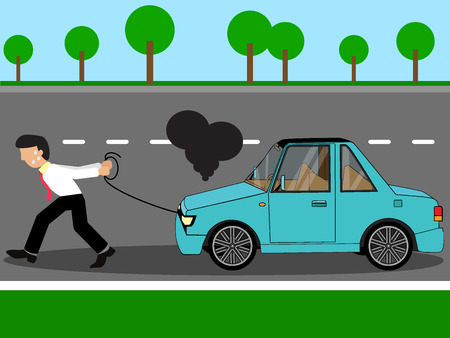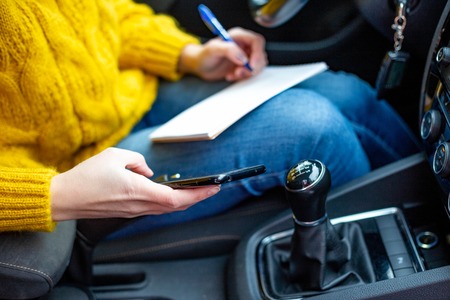1. Understanding Indian Road Conditions and their Impact on Health
Travelling by road in India is an experience unlike any other, especially when you are accompanied by children and elders. The countrys roads range from smooth highways to bumpy rural tracks, with unpredictable traffic patterns and diverse weather conditions. These factors can directly impact the health and comfort of your loved ones during a journey. For instance, heavy traffic in metropolitan cities like Delhi or Mumbai often leads to long travel times, making it essential to plan for frequent breaks, hydration, and access to healthy snacks. In rural areas, uneven roads may cause discomfort for elders who have joint issues or children prone to motion sickness. Additionally, Indias climate varies greatly—from scorching heat in Rajasthan to monsoon rains in Kerala—posing unique challenges in maintaining optimal temperature inside the vehicle and preventing dehydration or heatstroke. Being mindful of these road realities is the first step towards ensuring a safe and comfortable journey for both kids and elders while driving across India.
2. Planning Nutritional Meals and Healthy Snacks for Road Trips
When travelling with kids and elders on Indian roads, planning nutritious meals and snacks becomes essential to keep everyone healthy and energised. Due to long travel hours, unpredictable food options on highways, and dietary preferences based on age or region, it is wise to pack tiffins that cater to both taste and nutrition. Here are some practical tips for preparing wholesome, region-friendly tiffins and snacks:
Tips for Preparing Balanced Tiffins
- Incorporate Local Flavours: Include parathas, idlis, poha or theplas depending on your route; these are easy to digest and familiar for kids and elders.
- Focus on Freshness: Pack cut fruits like apples, bananas or oranges in airtight containers. For longer trips, opt for dried fruits like raisins, dates, or almonds which do not spoil easily.
- Protein Boost: Boiled eggs, paneer cubes, or chana salad provide much-needed energy for all age groups.
- Hydration is Key: Carry sufficient water bottles and traditional drinks like coconut water or buttermilk (chaas) to prevent dehydration.
Sample Tiffin Ideas for Kids & Elders
| Tiffin Item | Benefits | Region Suitability |
|---|---|---|
| Thepla with Curd | Easily digestible, probiotic boost | West India |
| Puliyogare Rice Balls | Satiating, tangy flavour for travel sickness | South India |
| Stuffed Paratha & Pickle | High in fibre & energy | North India |
| Dhokla Slices | Light & protein-rich | Gujarat & nearby regions |
Packing Smartly for the Indian Road Trip
Use steel or BPA-free plastic containers with tight lids to avoid spills. Separate dry and wet items. Always include napkins and hand sanitisers to maintain hygiene during meal times. With thoughtful planning, you can ensure balanced nutrition and safe eating habits for kids and elders while enjoying the diverse landscapes of India’s highways.

3. Hydration: Importance and Safe Drinking Water Solutions
Staying hydrated is crucial for both kids and elders, especially during long drives in India’s varied climate. Dehydration can lead to fatigue, headaches, and more severe health issues, particularly among vulnerable groups. Therefore, ensuring access to safe drinking water is a top priority for family road trips.
Safe Bottled Water Choices
When travelling on Indian highways or through rural regions, always choose sealed bottled water from reputed brands like Bisleri, Kinley, or Aquafina. Avoid buying bottles from roadside vendors where the seal may be tampered with. It’s wise to stock up on trusted brands before starting your journey or at well-known outlets along the way. Check the manufacturing and expiry dates before purchasing to ensure freshness.
Use of Traditional Flasks
Carrying your own hot water in traditional insulated flasks (like Milton or Cello) is a common Indian practice that keeps water safe and warm for hours. For elders who prefer boiled or lukewarm water, these flasks are ideal. You can fill them at home with filtered or boiled water and refill at hotels or reliable eateries en route.
Local Drinks to Prevent Dehydration
India’s regional drinks offer healthy hydration options. Coconut water (nariyal pani), sugarcane juice (ganne ka ras), and lemon water (nimbu pani) are widely available at clean stalls in most cities and towns. These not only quench thirst but also replenish essential salts lost due to sweating. Always ensure these are prepared fresh in front of you and served in clean glasses to avoid waterborne illnesses.
Extra Tips for Safe Hydration
- Avoid ice cubes as they may be made from contaminated water.
- Pack oral rehydration salts (ORS) sachets—widely available at chemists—to manage dehydration if symptoms appear.
- Encourage children and elders to take small sips frequently instead of waiting until thirsty, especially during summer or if travelling through dry states like Rajasthan or Gujarat.
By making informed choices about drinking water and leveraging local knowledge, you can keep your loved ones hydrated and healthy throughout your journey across India’s diverse landscapes.
4. Managing Motion Sickness and Other Common Health Issues
Travelling on Indian roads, especially with kids and elders, often brings the challenge of motion sickness and other minor health issues. Here’s how you can be well-prepared:
Preventing Motion Sickness
Motion sickness is common during long road trips, especially through winding ghats or bumpy rural roads. To prevent it:
- Choose the right seat: Let kids and elders sit in the middle row (if available) where there is less movement.
- Keep windows slightly open: Fresh air helps reduce nausea.
- Avoid heavy meals: Stick to light, non-spicy foods before and during travel.
- Distract with conversation or music: Engaging the mind helps both children and seniors forget about queasiness.
Essential Medicines to Carry
Packing a basic first aid kit is crucial for family road trips. Here’s a quick checklist:
| Medicine/Item | Purpose | Suitable For |
|---|---|---|
| Domperidone/Avomine | Prevents motion sickness | Kids & Elders (check dosage) |
| ORS Sachets | Rehydrates after vomiting/loose motions | All ages |
| Cetirizine/Alerid | Allergy relief | All ages (with paediatrician advice for kids) |
| Bandaids & antiseptic cream | Minor cuts/scrapes | All ages |
| Saridon/Crocin/Paracetamol | Pain & fever relief | All ages (appropriate dose) |
| Elders’ regular medication | Disease management (BP, diabetes, etc.) | Elders only |
Indian Home Remedies for Quick Relief
If you prefer natural solutions, Indian households have time-tested remedies that are safe for most children and elders:
- Lemon & salt: Sucking on a lemon slice with a pinch of salt helps curb nausea.
- Ada (ginger) tea or candies: Ginger soothes the stomach and prevents vomiting. Carry dry ginger powder or ginger chews as they’re easy to pack.
- Cumin seeds (jeera): Chewing a small amount can relieve bloating and discomfort.
- Pudina (mint) leaves: Chewing fresh mint leaves or sipping mint water calms the stomach.
- Elders’ tip – Ajwain water: A traditional digestive aid for both elders and kids over 5 years old.
Please Note:
Always consult your family doctor before trying new medicines or remedies, especially for very young children or elders with medical conditions. Keeping these tips in mind ensures a comfortable journey for everyone in your family.
5. Hygiene Practices and Cleanliness During Travel
Maintaining good hygiene while driving across India is essential, especially for children and elders who are more vulnerable to infections. Here are some practical tips tailored for Indian roads and travel scenarios:
Personal Hygiene Must-Dos
Always carry hand sanitisers (preferably alcohol-based), wet wipes, and tissues in your car. Encourage everyone to sanitise hands before eating or after touching surfaces at dhabas or petrol pumps. Instruct kids not to touch their faces with unwashed hands, and remind elders about regular sanitisation, as immunity can be lower with age.
Handling Public Restrooms Safely
Indian highways may offer public toilets that vary widely in cleanliness. Before entering, check for availability of water and soap. Carry your own toilet paper, liquid soap, or pocket-sized hand wash sheets. Advise kids and elders to avoid sitting directly on toilet seats—use disposable seat covers if possible or sanitize the surface with wipes. Always wash hands thoroughly after using any restroom.
Locally Available Sanitation Products
Make use of popular Indian brands of sanitisers, disinfectant sprays, and eco-friendly wet wipes available at kirana stores or supermarkets. Stock up on Dettol, Savlon, Himalaya wet wipes, and similar products before starting your journey. For longer trips, consider portable urinal bottles for elders or kids when clean restrooms aren’t available.
Extra Tips for Cleanliness on Indian Roads
Dispose of waste responsibly—carry garbage bags in the car to collect snack wrappers and used tissues until you find a dustbin. Avoid littering along highways; teach kids about Swachh Bharat principles during your trip. Keep an extra pair of slippers for rest stops and change back into clean footwear before entering the vehicle.
Summary
Prioritising hygiene with locally suitable products and careful restroom habits will help safeguard the health of both kids and elders while travelling in India, ensuring a safer and more comfortable journey for all.
6. Ensuring Comfort and Safety for All Age Groups
When travelling with family in India, it is important to make sure that both kids and elders are comfortable and safe throughout the journey. Indian families often travel together, especially during festivals, weddings, or pilgrimages. Here are practical steps to ensure comfort and safety for everyone in the car.
Adjusting Seating Arrangements
Always prioritise the seating of elders and children. Place elders in seats with easy access, preferably by the door, so they can get in and out without difficulty. For children, use age-appropriate car seats or booster seats as per Indian traffic regulations. Adjust the seatbacks for elders who may need extra support for their back or legs. Keep cushions or neck pillows handy, which are commonly used in Indian families for added comfort.
Taking Regular Breaks
Plan your route to include regular stops at clean dhabas or rest areas every 2-3 hours. This gives everyone a chance to stretch, use clean washrooms, and have some chai or snacks. Elders may need more frequent breaks due to health conditions like diabetes or arthritis, while kids will benefit from moving around instead of sitting still for long periods.
Adapting Travel Routines
Start your journey early in the morning when traffic is lighter and temperatures are cooler—this aligns with the Indian tradition of starting auspicious journeys at sunrise. Avoid late-night drives as they can be tiring and less safe. Carry light shawls or blankets; temperature inside the car can change quickly, especially when travelling between different states or regions.
Entertainment and Engagement
Keep traditional games, music playlists with Bollywood songs, or stories ready to keep kids entertained and elders engaged. Storytelling is a cherished custom in many Indian families and helps pass time pleasantly during long trips.
Involving Everyone in Planning
Before starting your trip, involve both kids and elders in planning rest stops, meal timings, and sightseeing spots. This makes everyone feel valued and ensures the journey is enjoyable for all age groups—a hallmark of Indian family travel culture.
7. Emergency Preparedness: Medical Kits and Contacts
Ensuring the safety of kids and elders on Indian roads requires more than just careful driving—it’s about being ready for any health emergencies. Having a well-equipped travel medical kit and knowing who to contact can make all the difference during unexpected situations, especially considering India’s varied terrains and sometimes unpredictable traffic conditions.
Checklist for a Travel Medical Kit
- Basic First Aid: Band-aids, antiseptic solution, cotton, sterile gauze, and adhesive tape.
- Prescription Medications: Ensure you carry enough of all prescribed medicines for both children and seniors, plus copies of prescriptions.
- Pain & Fever Relief: Paracetamol or ibuprofen suitable for both age groups.
- Allergy Medicines: Antihistamines (like cetirizine) and emergency allergy medication if needed.
- Digestive Aids: Oral rehydration salts (ORS), antacids, and anti-diarrheal medicines.
- Mosquito Repellent: Essential when travelling across many parts of India.
- Sunscreen & Lip Balm: To protect sensitive skin from harsh sun.
Important Helplines in India
- National Ambulance Service (108): Toll-free number for immediate medical help across most states.
- Child Helpline (1098): For any child-specific emergencies or support during travel.
- Elder Helpline (14567): Senior citizen-specific assistance available in many regions.
Useful Apps Widely Used in India
- Arogya Setu: For real-time updates on health advisories and nearest hospitals.
- Practo: Book doctor appointments or teleconsultations on the go.
- Red Cross First Aid App: Step-by-step first aid instructions in English and regional languages.
Pro Tip:
Keep a printed card with key medical information (allergies, chronic illnesses, emergency contacts) for each family member. Store digital copies on your phone as well. Being prepared means peace of mind—so you can focus on enjoying your journey while keeping your loved ones safe throughout your travels in India.


